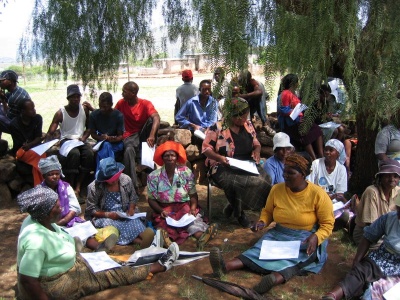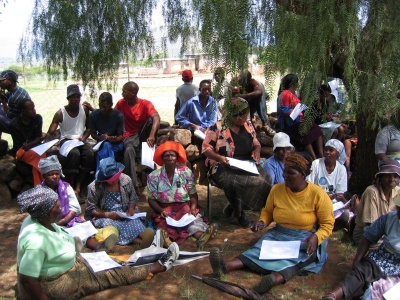Feeling Stressed: Integrating Climate Adaptation with Other Priorities in South Africa

Adaptation can be understood as an innate and ongoing process of finding ways to respond to stresses that reduce or combat negative impacts and harness potential benefits of change. A key concern is that with new money being made available for climate change research, policy development, and practice, people may place too much emphasis on addressing this as an isolated priority to the detriment of tackling other equally pressing social, economic, and environmental issues or finding integrated responses.
In response to this concern, a growing number of people are exploring how communities have and might respond to climate as one of a number of interacting stresses. Because climate stressors affect many aspects of our socioecological system, including water, health, food security, and agriculture, it is not difficult to intuitively make the connection between adaptation and development challenges such as combating un- and underemployment; improving access to water and sanitation, health care, and education; and empowering people in key decisionmaking processes. Following from this, one can see the potential for climate change to hamper the attainment of international development targets, for example, the Millennium Development Goals.
The nature of climate change presents many challenges in facilitating adaptation, as there are high levels of uncertainty in much of the climate science, and climate is only one of many stressors that people are faced with. In many places, changes in the climate affect the nature, magnitude, and frequency of a number of existing stresses experienced, while in others it may present completely new threats, such as flooding caused by rising sea levels and disease outbreaks in areas where they have not previously occurred. Equally likely to affect people are a number of stressors that have little or no connection to climate, but which are perceived to be even more pressing. So the impacts of climate change need to be understood and adapted to in the context of multiple stressors. There is an important time element associated with this, as people tend to be more aware of and motivated to act on immediate, more tangible stresses than on climate change, which can have slow onset and incremental impacts.

(0) Comments
There is no content